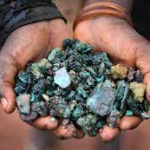 Tsingshan Holding Group, the Chinese company that shook up the nickel world by rapidly increasing production in Indonesia, is predominantly a stainless steel producer, coming out of nowhere to become the world’s top nickel producer in 2018 thanks to its pioneering use of low-grade nickel pig iron.
Tsingshan Holding Group, the Chinese company that shook up the nickel world by rapidly increasing production in Indonesia, is predominantly a stainless steel producer, coming out of nowhere to become the world’s top nickel producer in 2018 thanks to its pioneering use of low-grade nickel pig iron.
Together with China’s Chengxin Lithium Group Co they will produce 60,000 tons per year of lithium chemicals at a lithium processing plant in Indonesia.
Added to the production of nickel and cobalt for batteries already under development at its facilities in Indonesia, the lithium supplies would make Tsingshan a large-scale producer of three key ingredients needed for EVs and other rechargeable batteries.
However, unlike nickel and cobalt, which are found around Tsingshan’s operations in Indonesia, no known lithium deposits are mined in the country. That means the partners will have to look overseas for a supply of lithium-rich minerals such as spodumene to power the plant.
Chengxin reported that it would work with partners to ensure the supply of raw materials for the project. The Shenzhen-based company noted that it has recently expanded its upstream resource base through acquisitions in Argentina and Zimbabwe. It also has a stake in Huirong Mining, which is exploring a lithium mine in China’s Sichuan province.
Tsingshan itself is targeting an annual production of 24,000 tons of lithium carbonate in Argentina, after partnering with France’s Eramet, and is set to produce lithium iron phosphate (LFP) battery materials in Indonesia with Jiangsu Lopal Tech Co Ltd.
Indonesia’s proximity to Australia will prove very important as Australia is by far the world’s largest supplier of spodumene and is expected to drive 51% of the global increase in lithium raw material supply in 2020-25.
Tsingshan is already planning annual production of at least 230,000 tons of battery nickel and about 27,000 tons of cobalt with other partners in Indonesia. When the lithium plant goes live, it will give Tsingshan substantial volumes of a trio of metals related to the energy transition.
Tsingshan’s lithium would also advance the Indonesian government’s ambitions to become a major player in the EV supply chain, following large investments in the country by battery makers LG Chem Ltd and Contemporary Amperex Technology Co Ltd (CATL).
Indonesia aims to produce 140 gigawatt hours of batteries by 2030, while it would need about $35 billion in investment to develop an EV ecosystem, including EVs, battery plants, charging stations, battery recycling and trading facilities, in five to 10 years.
Just earlier this year, the government launched the Indonesia Battery Corporation, a state-owned enterprise aimed at developing the country’s battery sector.
The Chengxin/Tsingshan lithium plant in Indonesia will benefit from domestic demand and is strategically positioned to be the preferred supplier of lithium to battery manufacturers nationwide, who will not have to pay the shipping costs they would otherwise have to pay to import lithium.
Tsingshan is also expected to benefit from a 2-gigawatt clean energy power plant project in Indonesia, which will help reduce the company’s energy costs and increase its appeal as a low-emission supplier of key EV materials.
But Tsingshan must also overcome the fundamental challenge of profitably producing refined lithium products from scratch.
By converting locally available low-grade nickel cast iron to higher-grade nickel matte at mass scale – an intermediate product that can be used to make both stainless steel and batteries – the company has demonstrated a technological acumen that has put it on the radar of anyone following the EV supply chain.
.gif) Loading
Loading

